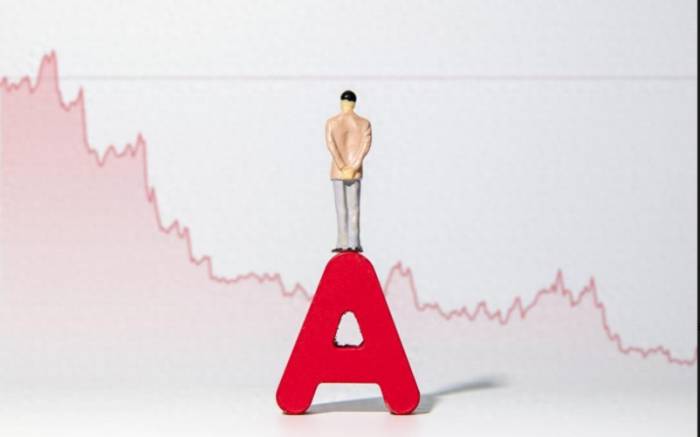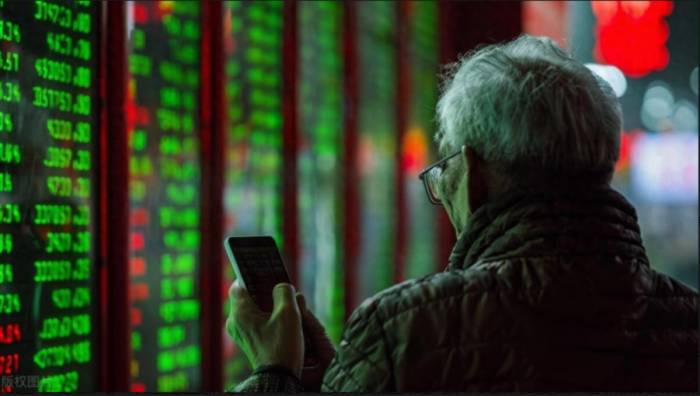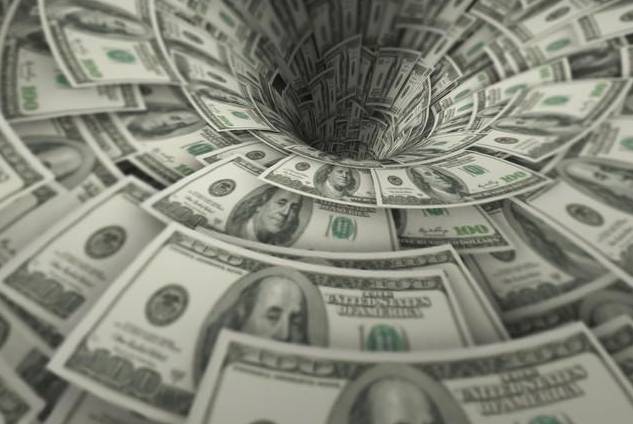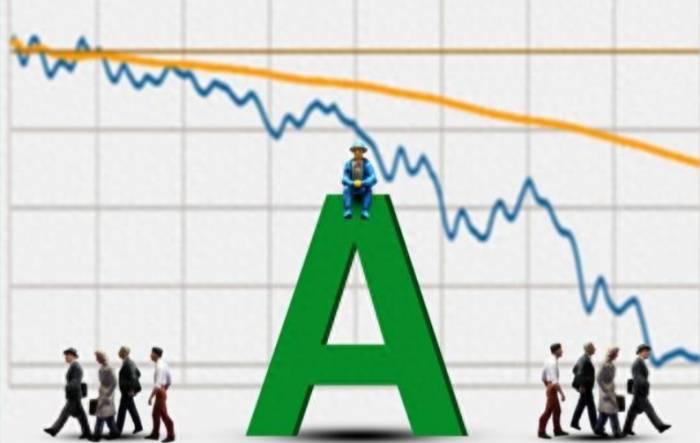Translation in English: The Shanghai Composite Index slightly rose, but why did
"Protecting the market while individual stocks fall" is the characteristic of today's A-share market; "The more the market is protected, the more severely retail investors suffer" is the unique feature of the A-share market. Can such a stock market still be played?
Today's A-share market is the most typical example. Under the protection of bank stocks and resource stocks, the Shanghai Composite Index fluctuated around the zero axis, while individual stocks suffered heavy losses, especially in home appliance and tourism stocks, which led to a wrong rhythm and dragged down the individual stocks. A "protecting the index with the left hand and smashing individual stocks with the right hand" market manipulation scenario unfolded.
Many retail investors probably want to curse when looking at today's market, as they face the situation where the overall index has not fallen, but their individual stocks have suffered heavy losses, with some stocks falling to an abysmal level. After closely observing the market, the real reasons are as follows:
First: The power of heavyweight stocks in protecting the market. Coal, non-ferrous metals, and oil stocks rose in volume, with bank stocks once again reaching new highs, especially the four major banks setting historical records. Because these stocks have been strong against the trend, they have attracted a large amount of capital, and the herd effect has come into play, with funds flowing into these heavyweight stocks, causing capital outflow from other individual stocks, leading to the decline of small and medium-sized thematic stocks.
Second: The power of short-selling forces in smashing the market. It is abnormal for the Shanghai Composite Index to rise today while individual stocks fall so severely. The most likely cause of this situation in today's A-share market is the short-selling forces, who profit from short-selling individual stocks. These short-sellers are most likely to be those who have recently issued new regulations on securities lending and quantitative trading. After all, new regulations have been introduced recently for these two forces, and short-selling forces will inevitably seize the opportunity to escape, and they will inevitably harvest a group of retail investors when they escape.
Third: The main force of capital smashing individual stocks. It is important to know that in addition to the short-selling forces, another force that is particularly distressing to the market and investors is the main force of capital. The main force is busy cashing out every day, and the cash-out amount is more than 10 billion yuan every day. For example, today, the main force has cashed out more than 20 billion yuan, and nearly 100 billion yuan has been cashed out in a week. With such a huge amount of capital smashing out, can individual stocks not fall?
Fourth: The tragedy of the slow decline of small and medium-sized thematic stocks. This year, the A-share market has been smashing small and medium-sized thematic stocks, causing most stocks to squeeze out bubbles. For example, today's individual stocks have suffered heavy losses, which is no longer surprising, as thematic stocks are falling freely, with no resistance at all. A little selling pressure will smash individual stocks, and a general decline in individual stocks will occur.
How will the A-share market perform tomorrow?
After today's "protecting the market with the left hand and smashing the market with the right hand" market manipulation scenario in the A-share market, the market and investors are completely disappointed and continue to be bearish on the trend of the A-share market.
The trend of tomorrow's A-share market continues to be bearish. The Shanghai Composite Index has been stuck at the 20-day moving average, and the differentiation of sectors and individual stocks continues to intensify. This means that no matter how the overall market operates tomorrow, the focus of sectors and individual stocks will be on the decline, and this trend will continue for a period of time, in order to pave the way for the last exploration of the A-share market in advance.The meaning is that the trend of A-shares tomorrow is not optimistic. At this moment, it is essential to be vigilant against the possibility of A-shares continuing to fall and test the bottom. There are two points of view:
Firstly: Recently, A-shares have been desperately defending the market. This defense is merely a bait for more buyers and is just a rebound in the middle of a downtrend, not a reversal of the decline to stabilize; it implies that the current phase of A-shares adjustment has not yet ended, and there is a high probability that there will be a final drop in the next stage. This risk must be controlled in advance to avoid unnecessary losses.
Secondly: The widespread decline in A-shares has become a norm. No matter how A-shares perform tomorrow, retail investors cannot escape the fate of losing money. If such a widespread decline continues, it will only lead to more disappointment for the market and investors. When investors become completely desperate and collapse, can the A-shares market improve? Therefore, considering the current overall environment of A-shares, it is a normal psychological response to be bearish.
In summary, this is the actual situation of A-shares today. The Shanghai Composite Index remained volatile throughout the day, and individual stocks maintained a widespread decline, turning green throughout the day. In the face of such a market, retail investors have to vote with their feet! The index did not fall, but individual stocks suffered, and retail investors' stock assets once again evaporated and shrank. Such a market is expected to continue, so the trend of A-shares tomorrow is not optimistic.
Since the current A-shares market is not optimistic, it indicates that the effect of losing money is still ongoing. For retail investors who do not want to be "chopped" and do not want to lose money, they can only watch more and act less. In the current A-shares market, not losing money is already a winner.





























